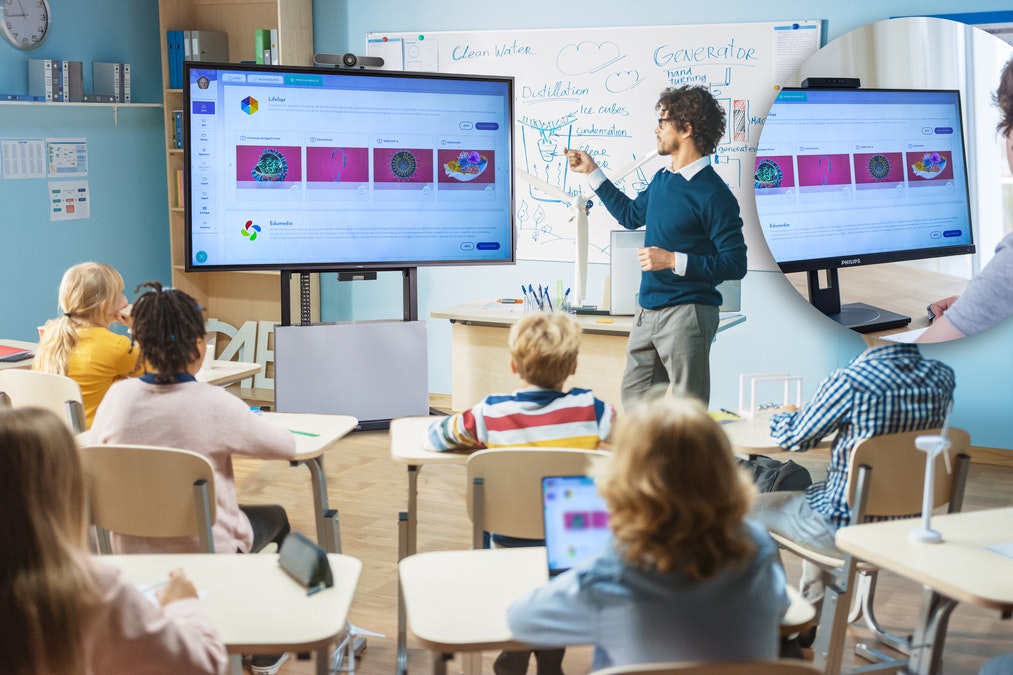Boost Your Child’s Confidence with Primary Science Tuition Singapore
Boost Your Child’s Confidence with Primary Science Tuition Singapore
Blog Article
Discover the Essential Benefits of Comprehending Main Scientific Research for Young Students
The relevance of key science education for young students prolongs far past mere expertise purchase; it offers as an essential pillar in establishing vital abilities such as essential thinking, problem-solving, and creativity. Engaging with clinical concepts via interactive and inquiry-based tasks not only grows curiosity yet likewise lays the foundation for resistant, positive students.
Enhancing Vital Believing Skills
Cultivating essential thinking skills in young learners is vital for their cognitive advancement and future academic success. Vital reasoning enables children to examine details, review proof, and make educated choices, which are crucial abilities in today's information-rich society. By taking part in scientific questions, young learners can improve these skills as they discover concepts with observation, thinking, and experimentation.
In primary scientific research education, instructors can promote important thinking by encouraging pupils to ask concerns, formulate theories, and carry out experiments. This hands-on strategy permits children to exercise analytic and develop logical reasoning abilities. When pupils examine the homes of products or the principles of movement, they learn to examine their findings seriously and attract verdicts based on proof.
In addition, conversations and collaborative jobs can advertise crucial thinking by giving chances for learners to articulate their thoughts, challenge assumptions, and take into consideration diverse point of views. By developing an encouraging setting that values query and representation, educators can nurture essential believing abilities that encourage young students to come to be independent thinkers and long-lasting learners. Inevitably, enhancing these abilities lays a durable foundation for their future scholastic endeavors and personal development.
Promoting Inquisitiveness and Expedition

Primary scientific research education provides an organized environment where young learners can check out various phenomena via hands-on experiments and observations. By allowing them to engage with products and engage in inquiry-based learning, educators develop chances for kids to create theories, evaluate their concepts, and draw final thoughts. Such experiences support a sense of marvel and excitement regarding scientific research.

Structure Self-confidence in Issue Resolving
Building self-confidence in problem-solving is an important component of main science education and learning that empowers young learners to approach difficulties with durability and imagination - primary science tuition Singapore. They establish important skills in critical thinking and evaluation when children are motivated to engage with clinical concepts via hands-on tasks and inquiry-based knowing. This process not only improves their understanding of clinical principles however additionally fosters a sense of ownership over their discovering
To build self-confidence, educators need to develop a helpful atmosphere where errors are deemed opportunities for development instead of failures. This urges students to take dangers and discover different services to issues. By providing scaffolding and guidance, instructors can help trainees browse complex jobs, slowly raising their read review self-reliance in analytic scenarios.
In addition, collaborative knowing experiences, such as group jobs or experiments, can better improve trainees' self-confidence as they discover to verbalize their thoughts and listen to others' point of views. These communications nurture social abilities and reinforce the idea that analytical is commonly a collective venture. Inevitably, growing see this website self-confidence in problem-solving prepares young learners for future academic challenges and equips them with the devices essential for long-lasting discovering.
Encouraging Creative Thinking and Innovation
In the realm of key scientific research education and learning, encouraging creative thinking and advancement is essential for growing a dynamic learning atmosphere. By fostering a society where young learners can discover concepts and experiment openly, educators help trainees create vital assuming skills and an enthusiasm for exploration. Creativity in science urges kids to ask questions, create hypotheses, and take part in hands-on tasks that promote their creative imagination.
Incorporating open-ended tasks and inquiry-based learning right into the curriculum permits students to share their one-of-a-kind viewpoints and options. For example, when charged with solving an issue pertaining to their setting, trainees can brainstorm multiple methods, bring about inventive end results that display their originality. This not just strengthens their understanding of scientific principles however additionally imparts a feeling of possession over their discovering process.
Additionally, innovative science education supports collaboration among peers, as pupils commonly share ideas and improve one another's understandings - primary science tuition Singapore. This joint spirit promotes not just innovation yet additionally vital social skills. Thus, by prioritizing creative thinking and advancement in main science education, we encourage young learners to believe seriously, embrace difficulties, and picture opportunities, laying a strong foundation for long-lasting knowing and expedition
Getting Ready For Future Understanding Difficulties
Young students' ability to navigate future learning obstacles depends upon a strong structure in primary scientific research education and learning. This foundational understanding equips trainees with critical assuming skills and a methodical strategy to analytical, important for dealing with complicated problems in an ever-evolving globe. Main science promotes inquiry-based discovering, urging students to ask inquiries, explore theories, and involve in hands-on experiments.
As they create these skills, learners end up being adept at examining data, acknowledging patterns, and drawing notified final thoughts. Such competencies are important not just in scientific fields but additionally in design, mathematics, and innovation (STEM), where interdisciplinary expertise is significantly important.
Furthermore, primary scientific research education cultivates a sense of inquisitiveness and strength in young learners, enabling them to see obstacles as possibilities for development. As they come across and overcome challenges in their scientific explorations, they build confidence in their capacity to introduce and adapt.
Eventually, a solid structure in primary science not only prepares young learners for academic pursuits but additionally furnishes them with the tools necessary for lifelong learning and adaptability in a quickly transforming global landscape. By Web Site spending in key scientific research education and learning, we are investing in the future potential of our learners.
Verdict
Recognizing main scientific research is essential for young students, as it promotes essential reasoning, inquisitiveness, and imagination. Involving with scientific principles via hands-on experiments enhances analytic abilities and develops strength. This foundational understanding not only furnishes pupils to evaluate information and recognize patterns yet also supports an inquiry-based mindset. Ultimately, the benefits of primary scientific research education and learning prepare youngsters for future scholastic quests and impart long-lasting understanding routines vital for prospering in an ever-evolving world.
The value of main science education for young learners prolongs much beyond simple understanding procurement; it offers as an essential column in creating important skills such as essential thinking, analytic, and creative thinking. By creating a helpful setting that values questions and representation, teachers can nurture vital thinking skills that empower young students to end up being independent thinkers and long-lasting students. Therefore, by prioritizing creative thinking and development in primary science education, we equip young students to think critically, welcome challenges, and envision opportunities, laying a solid foundation for long-lasting knowing and exploration.
Young students' capability to browse future discovering difficulties hinges on a solid structure in key science education.Understanding key scientific research is essential for young students, as it fosters crucial reasoning, inquisitiveness, and creativity.
Report this page